
1. Introduction: Competing Models of Regional Engagement
The evolving geopolitical dynamics of Eurasia in 2025 have brought into sharp relief two distinct approaches to regional security and cooperation. The Ankara Black Sea Security Meeting (April 15–16, 2025), hosted by Türkiye, and the EU–Central Asia Summit (April 3–4, 2025) in Samarkand, Uzbekistan, exemplify fundamentally divergent philosophies of engagement. The former, a Turkish-led multilateral initiative, prioritized post-ceasefire security planning in the Black Sea through inclusive dialogue among regional stakeholders, while the latter underscored the European Union’s strategy of leveraging economic partnerships to advance political objectives, notably through implicit recognition of Greek Administration of Southern Cyprus.
Türkiye’s Ankara meeting, convened at the Turkish Naval Forces Headquarters, brought together military representatives from 21 nations, including Ukraine, France, the UK, Bulgaria, Romania, and Georgia, to address maritime security, mine clearance, and stability mechanisms in anticipation of a potential Russia-Ukraine ceasefire.[1] This initiative aligned with Türkiye’s long-standing emphasis on constructive regionalism, characterized by multilateralism, strategic autonomy, and a focus on practical cooperation over ideological posturing.
As highlighted by AVİM analysts, Türkiye’s approach to Black Sea security has historically sought to balance regional ownership with NATO obligations, exemplified by initiatives like Operation Black Sea Harmony and the Black Sea Naval Force (BLACKSEAFOR). Ankara stressed its role as a mediator and stabilizer, ensuring that solutions emerge from regional consensus rather than external imposition.[2]
In contrast, the EU’s Samarkand summit marked a shift toward coercive conditionality in Central Asia. While ostensibly focused on fostering connectivity and sustainable development through a €10–12 billion investment pledge, the summit’s joint declaration embedded clauses reaffirming “territorial integrity” and UN Security Council Resolutions 541 (1983) and 550 (1984)—thereby tacitly endorsing Greek Administration Southern Cyprus’ sovereignty claims over the Turkish Republic of Northern Cyprus (TRNC). This linkage of economic incentives to political alignment, particularly on an issue peripheral to Central Asia’s immediate interests, underscored the EU’s biased transactional diplomacy. AVİM critiqued this approach as a missed opportunity for genuine partnership, noting the exclusion of Türkiye—a critical regional actor with deep cultural and historical ties to Central Asia—from the proceedings.[3]
These events illuminate a broader contest between Türkiye’s model of constructive regionalism, rooted in equitable dialogue and shared agency, and the EU’s coercive conditionality, which subordinates regional priorities to external normative agendas. The analysis that follows explores how these approaches shape stability, sovereignty, and long-term cooperation in Eurasia.
2. Türkiye’s Black Sea Diplomacy: A Model of Constructive Regionalism
Multilateralism and Inclusivity
Türkiye’s hosting of the Ankara Black Sea Security Meeting (April 15–16, 2025) exemplifies its commitment to fostering regionally owned solutions through inclusive multilateralism. By convening 21 nations—including Ukraine, France, the United Kingdom, Bulgaria, Romania, and Georgia—Türkiye prioritized the participation of littoral states and regional stakeholders over external great powers. This approach aligns with the principles of Constructive Eurasianism, which advocates for collaborative frameworks that respect regional agency and avoid zero-sum geopolitical rivalries.[4] The meeting’s agenda, focused on post-ceasefire security planning, maritime safety, and mine clearance, underscored Türkiye’s pragmatic emphasis on shared challenges rather than ideological divides.
This multilateralism reflects Türkiye’s historical role as a stabilizer in the Black Sea, evident in initiatives like Operation Black Sea Harmony and the Black Sea Naval Force (BLACKSEAFOR). By excluding non-littoral powers such as the United States and Russia, Türkiye reinforced the principle of regional ownership, ensuring that solutions emerge from consensus among states directly affected by Black Sea security dynamics. As emphasized in AVİM analyses, Türkiye’s diplomatic strategy in the region has consistently sought to balance institutional ties with NATO while safeguarding regional autonomy.[5]
Strategic Autonomy and Mediation
The exclusion of the U.S. and Russia from the Ankara talks was a deliberate choice to position Türkiye as a neutral mediator and regional player. This decision aligns with Constructive Eurasianism, which emphasizes strategic autonomy, dynamic adaptation to geopolitical shifts, and mediation as tools to foster stability. By avoiding entanglement in great power competition, Türkiye has cultivated a unique role as a trusted interlocutor, capable of bridging divergent interests.
The meeting’s focus on practical cooperation—such as mine clearance, shipping safety, and post-ceasefire monitoring—highlighted Türkiye’s preference for actionable outcomes over symbolic gestures. This approach resonates with AVİM’s assessment that Türkiye’s foreign policy in Eurasia prioritizes “stability through cooperation” rather than ideological posturing. For instance, Türkiye’s application of the Montreux Convention during the Russia-Ukraine conflict demonstrated its ability to balance legal obligations with regional security needs, earning recognition as a responsible stakeholder.
Outcomes
The Ankara meeting laid critical groundwork for a post-ceasefire security architecture in the Black Sea. Key outcomes included:
- Coalition-Building: A “coalition of the willing” emerged, comprising regional and European partners committed to ensuring maritime security and freedom of navigation.
- Operational Frameworks: Discussions advanced plans for multinational naval deployments to monitor ceasefire compliance, clear mines, and secure shipping lanes.
- Reinforced Regional Partnerships: Ukraine’s role in the talks underscored Türkiye’s commitment to fostering equitable dialogue among littoral states, reinforcing trust and long-term collaboration.[6]
These outcomes reflect Türkiye’s success in advancing a constructive regionalism model that avoids alienating stakeholders. By centering regional voices and prioritizing practical cooperation, Türkiye has positioned itself as an indispensable actor in shaping the Black Sea’s future security landscape.
3. EU’s Central Asia Strategy: Coercion and Division
Economic Leverage as Diplomatic Weapon
The EU’s engagement with Central Asia, epitomized by the Samarkand Summit (April 3–4, 2025), has revealed a strategy predicated on leveraging economic incentives to advance political objectives. The bloc’s pledge of €12 billion for infrastructure, energy, and connectivity projects in Central Asia was explicitly tied to adherence to EU foreign policy priorities, including implicit recognition of Southern Cyprus through clauses reaffirming “territorial integrity” and UN Security Council Resolutions 541 (1983) and 550 (1984).[7]
By embedding these principles into the summit’s joint declaration, the EU effectively pressured Central Asian states—particularly Kazakhstan, Uzbekistan, and Turkmenistan—to align with its stance on Cyprus, despite their membership in the Organization of Turkic States (OTS) and historical ties to Türkiye. [8]
This approach undermines Türkiye’s longstanding efforts to foster OTS solidarity, notably its advocacy for a two-state solution in Cyprus and observer status for the Turkish Republic of Northern Cyprus (TRNC) within the OTS. As AVİM analysts have noted, such conditional diplomacy transforms economic partnerships into tools of political coercion, eroding the autonomy of Central Asian states and sidelining Türkiye’s role as a regional stakeholder.
Destabilizing Regional Dynamics
The EU’s strategy has forced Central Asian nations into an undesirable false choice between economic development and OTS unity, fracturing regional cohesion. By conditioning investments on alignment with EU norms—particularly regarding Cyprus—Brussels has prioritized unilateral geopolitical gains over sustainable, equitable partnerships. This contrasts sharply with Türkiye’s constructive regionalism in the Black Sea, which emphasizes inclusive dialogue and shared ownership of security challenges without imposing external ideological conditions.[9]
Such moves risk drifting Central Asia to a theater of great power competition, rather than a space for collaborative development anchored in regional agency.[10]
Long-Term Risks
Central Asia’s alignment with the EU on Cyprus carries significant risks for regional stability and Türkiye’s strategic interests. By alienating Türkiye—a critical partner in energy, security, and cultural cooperation—the EU’s approach aims to destabilize the OTS and weaken Türkiye’s capacity to mediate conflicts in Eurasia. AVİM has warned that such divisive tactics could fragment the Turkic world, leaving Central Asian states vulnerable to external manipulation by rival powers like China and Russia.[11]
Moreover, the EU’s transactional diplomacy risks undermining its own long-term goals in Central Asia. By prioritizing short-term geopolitical victories over genuine partnership, Brussels risks fostering resentment among regional actors, who may increasingly view EU engagement as a vehicle for ideological imposition rather than mutual benefit.
5. Conclusion: Lessons for Eurasian Diplomacy
The contrasting outcomes of Türkiye’s Ankara Black Sea Security Meeting and the EU’s Samarkand Summit underscore fundamental divergences in approaches to regional engagement. Türkiye’s model of constructive regionalism, Constructive Eurasianism, prioritizes inclusive dialogue, strategic autonomy, and practical cooperation to address shared challenges. By convening regional stakeholders and excluding external great powers, Türkiye reinforced its role as a mediator and stabilizer, fostering trust through equitable participation and respect for sovereignty. In contrast, the EU’s transactional diplomacy in Central Asia, exemplified by its €12 billion investment pledge tied to political alignment on Cyprus, reflects a zero-sum approach that subordinates regional agency to external normative agendas.
Sovereignty and Stability
Türkiye’s emphasis on regional ownership in the Black Sea ensured that solutions emerged from consensus among littoral states. This approach, aligned with the Montreux Convention’s principles, balanced legal obligations with security needs, earning recognition as a responsible stakeholder. Conversely, the EU’s imposition of “territorial integrity” clauses in Central Asia disregarded Turkic states’ cultural and political ties to Türkiye, fracturing regional cohesion and undermining the Organization of Turkic States (OTS).
Geopolitical Balancing
Türkiye’s ability to engage NATO/EU partners while avoiding antagonism toward Russia exemplifies Constructive Eurasianism’s core tenet of dynamic adaptation. The EU, however, exploited Central Asia’s economic vulnerabilities to counterbalance China and Russia, exacerbating great power competition and reducing the region to a geopolitical battleground.
Pathways Forward
The lessons for Eurasian diplomacy are clear:
- Türkiye’s Constructive Eurasianism offers a blueprint for stabilizing conflicts through multilateralism and shared ownership, as demonstrated by the Ankara meeting’s operational frameworks for mine clearance and maritime security.
- The EU’s coercive conditionality risks long-term instability by fostering dependency and resentment, as seen in Central Asia’s forced alignment on Cyprus.
- Regional actors must reject externally imposed conditions and embrace cooperative models that prioritize equitable partnerships over ideological or transactional gains.
As AVİM analysts emphasize, Türkiye’s approach—grounded in historical consciousness and pragmatic mediation—provides a sustainable alternative to great power rivalry. The future of Eurasian stability lies not in zero-sum diplomacy, but in frameworks that respect sovereignty, foster trust, and harness regional agency.
*Picture: Directorate of Communications
[1] Aslan Yavuz Şir, Militarization in the Black Sea Region: Causes and Implications for Regional Security and Beyond (Ankara: AVİM, 2018), https://avim.org.tr/public/images/uploads/files/5aslanyavuzsir.pdf ; Daily Sabah, “Türkiye Set to Host Key Meeting on Black Sea Security,” April 13, 2025, https://www.dailysabah.com/politics/turkiye-set-to-host-key-meeting-on-black-sea-security/news ; Hazel Çağan Elbir, Reflections on the EU – Central Asia Summit (Ankara: AVİM, April 11, 2025), https://avim.org.tr/en/Analiz/REFLECTIONS-ON-THE-EU-CENTRAL-ASIA-SUMMIT .
[2] Aslan Yavuz Şir, Militarization in the Black Sea Region: Causes and Implications for Regional Security and Beyond (Ankara: AVİM, 2018), https://avim.org.tr/public/images/uploads/files/5aslanyavuzsir.pdf ; Hazel Çağan Elbir, Reflections on the EU – Central Asia Summit ; Defense News, “Turkey Hosts Black Sea Security Talks with Ukraine, France, UK,” April 16, 2025, https://www.defensenews.com/global/europe/2025/04/16/turkey-hosts-black-sea-security-talks-with-ukraine-france-uk/ .
[3] Hazel Çağan Elbir, Reflections on the EU – Central Asia Summit (Ankara: AVİM, April 11, 2025), https://avim.org.tr/en/Analiz/REFLECTIONS-ON-THE-EU-CENTRAL-ASIA-SUMMIT ; Hazel Çağan Elbir, The EU's First Serious Central Asia Initiative (Ankara: AVİM, March 27, 2025), https://avim.org.tr/en/Analiz/THE-EU-S-FIRST-SERIOUS-CENTRAL-ASIA-INITIATIVE .
[4] Teoman Ertuğrul Tulun, Constructive Eurasianism in the Eastern Mediterranean: Türkiye's Role in Balancing Cooperation, Sovereignty, and Regional Stability (Ankara: AVİM, March 28, 2025), https://avim.org.tr/en/Analiz/CONSTRUCTIVE-EURASIANISM-IN-THE-EASTERN-MEDITERRANEAN-TURKIYE-S-ROLE-IN-BALANCING-COOPERATION-SOVEREIGNTY-AND-REGIONAL-STABILITY .
[5] Teoman Ertuğrul Tulun, Constructive Eurasianism in the Eastern Mediterranean: Türkiye's Role in Balancing Cooperation, Sovereignty, and Regional Stability ; Teoman Ertuğrul Tulun. “Seminar Titled ‘Constructive Eurasianism: Fostering Cooperation through Think Tanks in the Eurasian Space.’” January 15, 2025. https://www.avim.org.tr/en/Duyuru/SEMINAR-TITLED-CONSTRUCTIVE-EURASIANISM-FOSTERING-COOPERATION-THROUGH-THINK-TANKS-IN-THE-EURASIAN-SPACE .
[6] Daria Isachenko and Erol Kaymak, Turkey's Strategic Autonomy in the Black Sea and the Eastern Mediterranean (Berlin: Stiftung Wissenschaft und Politik [SWP], 2024), https://www.swp-berlin.org/publikation/turkeys-strategic-autonomy-in-the-black-sea-and-the-eastern-mediterranean ; AVİM, 25 Years of Turkey-Ukraine Diplomatic Relations (Ankara: AVİM, 2018), https://avim.org.tr/images/uploads/Rapor/toplanti-25-arsiv.pdf .
[7] The Diplomat, “Central Asia Opens Diplomatic Rift With Turkiye Over Cyprus,” April 18, 2025, https://thediplomat.com/2025/04/central-asia-opens-diplomatic-rift-with-turkiye-over-cyprus/ ; AzerNews, “EU-Central Asia Summit Tests Unity of Turkic World Amid Northern Cyprus Dispute,” April 14, 2025, https://www.dailysabah.com/politics/news-analysis/cyprus-shift-by-turkic-states-deals-blow-to-turkish-strategy .
[8] Daily Sabah, “Cyprus Shift by Turkic States Deals Blow to Turkish Strategy,” April 17, 2025, https://www.turkishminute.com/2025/04/08/ankara-faces-diplomatic-setback-as-central-asian-states-name-ambassadors-to-cyprus3/ ; TCEXIST, “Turkic Unity at a Crossroads: The Imperative of Supporting the TRNC,” April 17, 2025, https://www.iene.eu/energy-news/big-setback-for-turkey-as-three-central-asian-nations-support-cypruss-sovereignty-end-of-road-for-erdogans-pan-turkism-p7753.html .
[9] TCEXIST, “Turkic Unity at a Crossroads: The Imperative of Supporting the TRNC,” ; EADaily, “Central Asian Countries Have Distanced Themselves from Turkey,” April 8, 2025, https://tcexist.com/article/turkic-unity-at-a-crossroads-the-imperative-of-supporting-the-trnc ; Turkish Minute, “Ankara Faces Diplomatic Setback as Central Asian States Name Ambassadors to Cyprus,” April 8, 2025, https://www.eurasiantimes.com/end-of-the-road-for-pan-turkism-as-three-central-asian-states/ .
[10] TCEXIST, “Turkic Unity at a Crossroads: The Imperative of Supporting the TRNC,” ; EADaily, “Central Asian Countries Have Distanced Themselves from Turkey“
[11] Daily Sabah, “Cyprus Shift by Turkic States Deals Blow to Turkish Strategy,”; TCEXIST, “Turkic Unity at a Crossroads: The Imperative of Supporting the TRNC,” ; EADaily, “Central Asian Countries Have Distanced Themselves from Turkey“.
© 2009-2025 Center for Eurasian Studies (AVİM) All Rights Reserved
No comments yet.
-
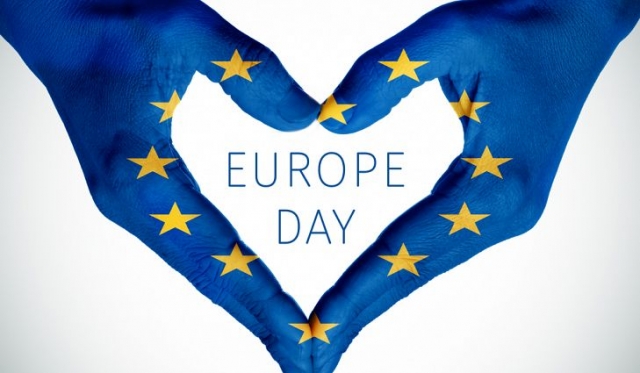 EUROPE DAY CELEBRATIONS - EU SYMBOLS AND TURKEY
EUROPE DAY CELEBRATIONS - EU SYMBOLS AND TURKEY
Teoman Ertuğrul TULUN 17.05.2019 -
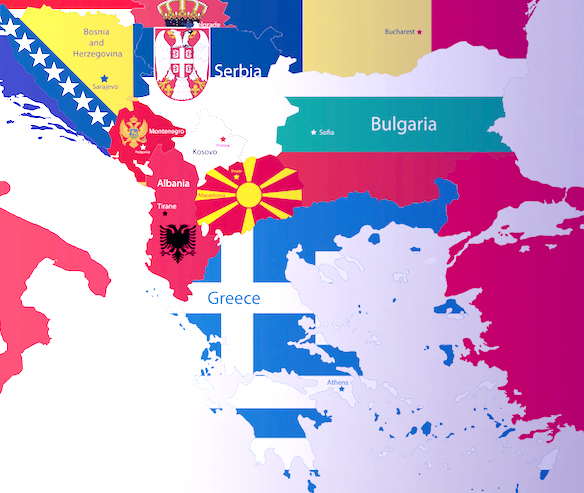 CHAILLOT PAPER ON BALKANS FUTURE: A CASE OF ILL-INFORMED LEADING THE ILL-INFORMED
CHAILLOT PAPER ON BALKANS FUTURE: A CASE OF ILL-INFORMED LEADING THE ILL-INFORMED
Teoman Ertuğrul TULUN 02.10.2018 -
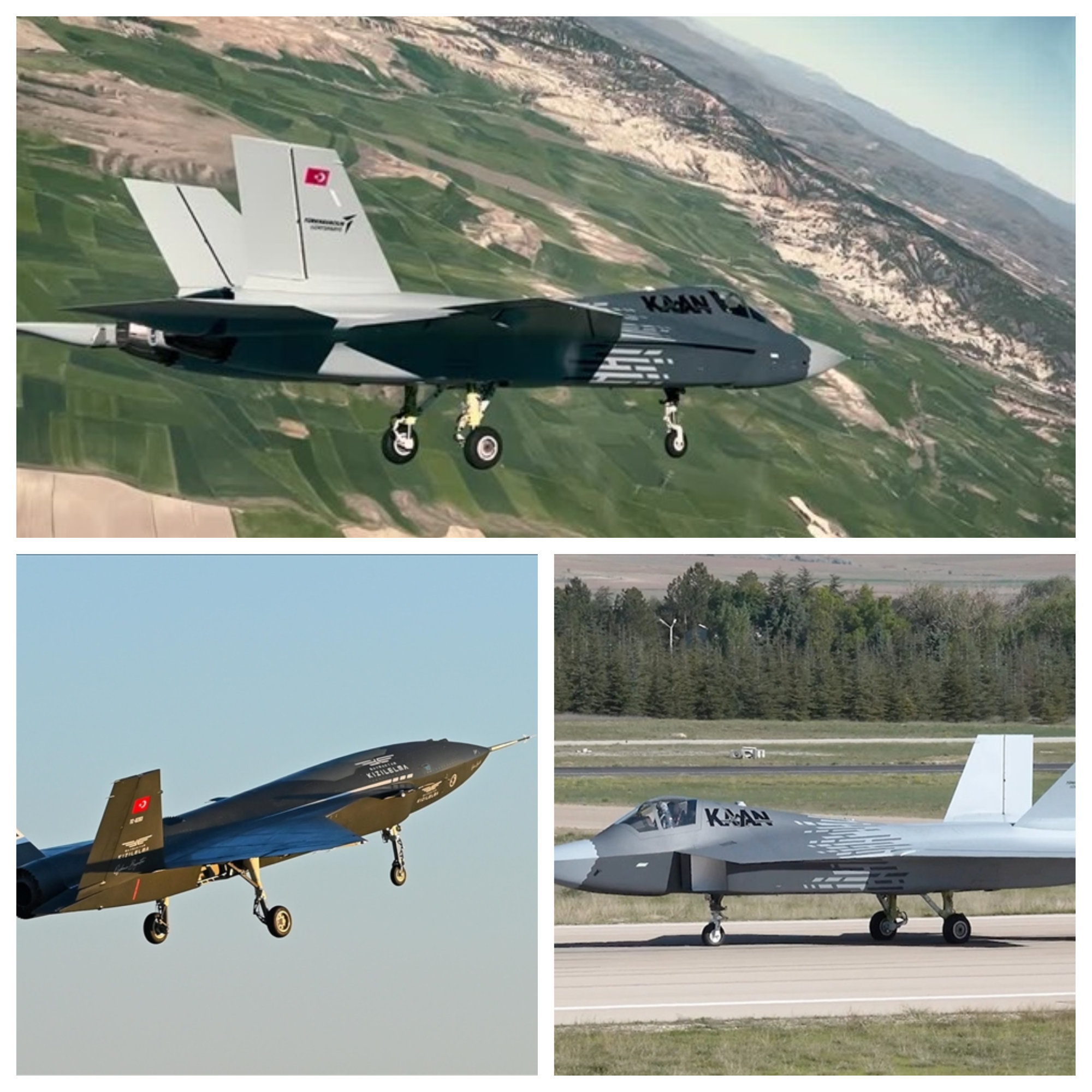 ESTABLISHING THE DELICATE BALANCE BETWEEN STRATEGIC AUTONOMY AND STRATEGIC INTERDEPENDENCE: THE CASE OF TÜRKIYE
ESTABLISHING THE DELICATE BALANCE BETWEEN STRATEGIC AUTONOMY AND STRATEGIC INTERDEPENDENCE: THE CASE OF TÜRKIYE
Teoman Ertuğrul TULUN 05.08.2025 -
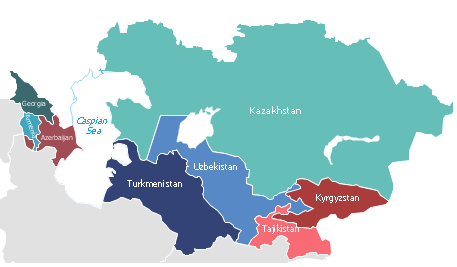 A QUARTER OF A CENTURY OF INDEPENDENCE OF CENTRAL ASIAN AND SOUTH CAUCASUS COUNTRIES: AN ECONOMIC SNAPSHOT AND PROSPECTS FOR THE FUTURE
A QUARTER OF A CENTURY OF INDEPENDENCE OF CENTRAL ASIAN AND SOUTH CAUCASUS COUNTRIES: AN ECONOMIC SNAPSHOT AND PROSPECTS FOR THE FUTURE
Teoman Ertuğrul TULUN 14.12.2016 -
 TURKISH MIGRANTS AND THEIR CONTRIBUTION TO TECHNOLOGICAL DEVELOPMENT
TURKISH MIGRANTS AND THEIR CONTRIBUTION TO TECHNOLOGICAL DEVELOPMENT
Teoman Ertuğrul TULUN 24.03.2021
-
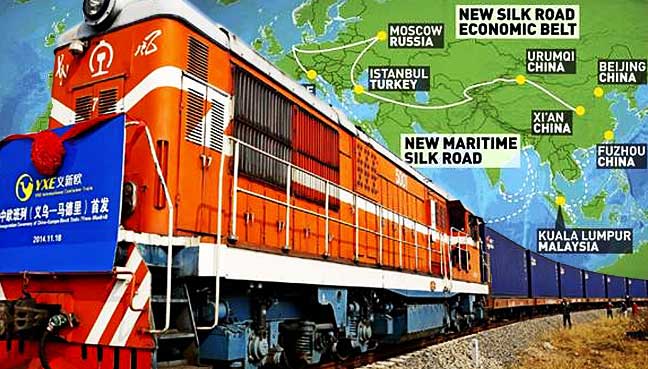 THE CHARMING MODERN SILK ROAD DAZZLES THE EU
THE CHARMING MODERN SILK ROAD DAZZLES THE EU
Hazel ÇAĞAN ELBİR 29.04.2019 -
 EU STRATEGIC COMPASS FOR SECURITY AND DEFENCE SHOWS THE WRONG COURSE AT THE WORST POSSIBLE TIME
EU STRATEGIC COMPASS FOR SECURITY AND DEFENCE SHOWS THE WRONG COURSE AT THE WORST POSSIBLE TIME
Teoman Ertuğrul TULUN 04.04.2022 -
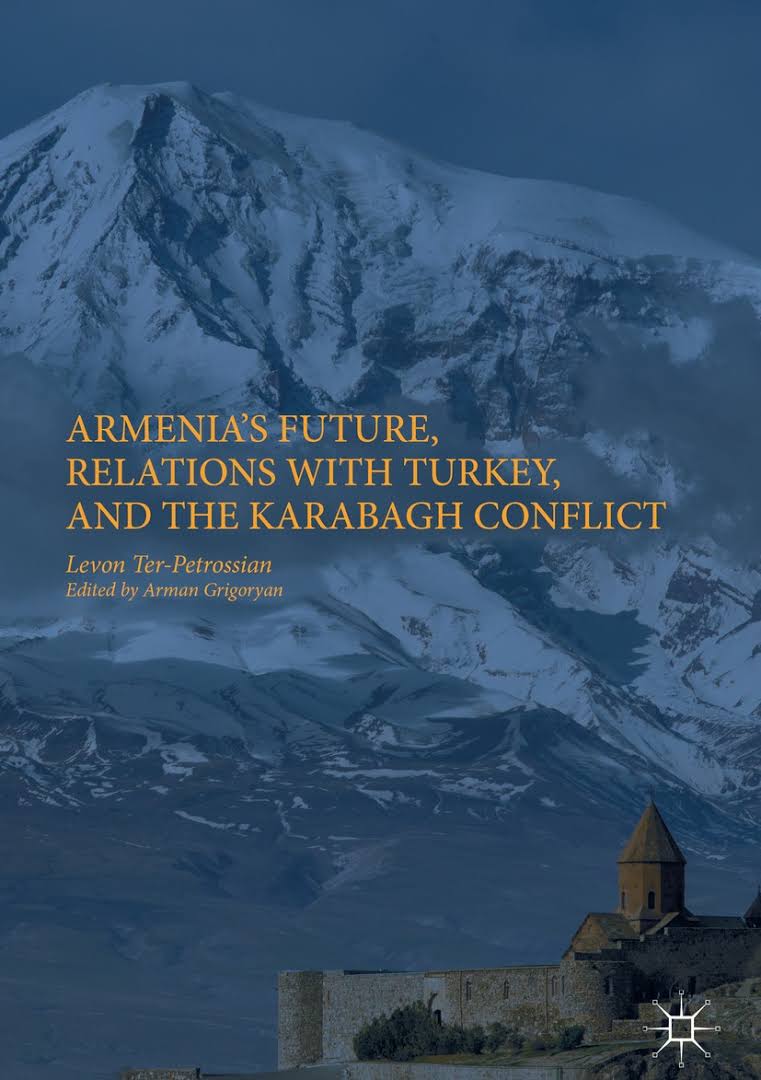 BOOK REVIEW: “ARMENIA’S FUTURE, RELATIONS WITH TURKEY, AND THE KARABAGH CONFLICT”
BOOK REVIEW: “ARMENIA’S FUTURE, RELATIONS WITH TURKEY, AND THE KARABAGH CONFLICT”
Gülperi GÜNGÖR 11.02.2020 -
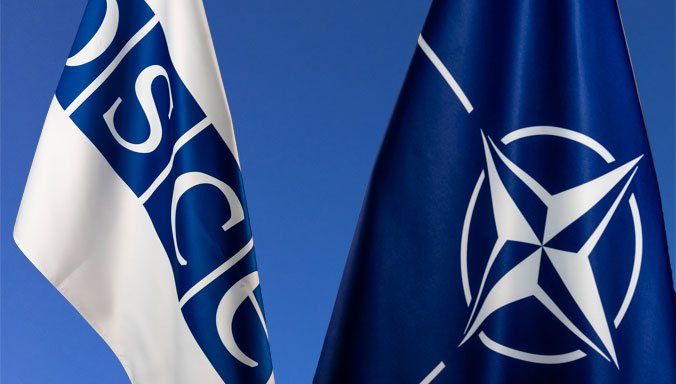 NATO IS NOT BRAIN-DEAD: HOW CAN OSCE AND NATO HELP STOP THE WAR IN UKRAINE?
NATO IS NOT BRAIN-DEAD: HOW CAN OSCE AND NATO HELP STOP THE WAR IN UKRAINE?
Teoman Ertuğrul TULUN 08.03.2022 -
 FROM SYMBOLISM TO SCRUTINY: THE TRANSFORMATION OF FRANCE'S GENOCIDE CLAIMS
FROM SYMBOLISM TO SCRUTINY: THE TRANSFORMATION OF FRANCE'S GENOCIDE CLAIMS
Teoman Ertuğrul TULUN 01.07.2025
-
25.01.2016
THE ARMENIAN QUESTION - BASIC KNOWLEDGE AND DOCUMENTATION -
12.06.2024
THE TRUTH WILL OUT -
27.03.2023
RADİKAL ERMENİ UNSURLARCA GERÇEKLEŞTİRİLEN MEZALİMLER VE VANDALİZM -
17.03.2023
PATRIOTISM PERVERTED -
23.02.2023
MEN ARE LIKE THAT -
03.02.2023
BAKÜ-TİFLİS-CEYHAN BORU HATTININ YAŞANAN TARİHİ -
16.12.2022
INTERNATIONAL SCHOLARS ON THE EVENTS OF 1915 -
07.12.2022
FAKE PHOTOS AND THE ARMENIAN PROPAGANDA -
07.12.2022
ERMENİ PROPAGANDASI VE SAHTE RESİMLER -
01.01.2022
A Letter From Japan - Strategically Mum: The Silence of the Armenians -
01.01.2022
Japonya'dan Bir Mektup - Stratejik Suskunluk: Ermenilerin Sessizliği -
03.06.2020
Anastas Mikoyan: Confessions of an Armenian Bolshevik -
08.04.2020
Sovyet Sonrası Ukrayna’da Devlet, Toplum ve Siyaset - Değişen Dinamikler, Dönüşen Kimlikler -
12.06.2018
Ermeni Sorunuyla İlgili İngiliz Belgeleri (1912-1923) - British Documents on Armenian Question (1912-1923) -
02.12.2016
Turkish-Russian Academics: A Historical Study on the Caucasus -
01.07.2016
Gürcistan'daki Müslüman Topluluklar: Azınlık Hakları, Kimlik, Siyaset -
10.03.2016
Armenian Diaspora: Diaspora, State and the Imagination of the Republic of Armenia -
24.01.2016
ERMENİ SORUNU - TEMEL BİLGİ VE BELGELER (2. BASKI)
-
AVİM Conference Hall 24.01.2023
CONFERENCE TITLED “HUNGARY’S PERSPECTIVES ON THE TURKIC WORLD"









